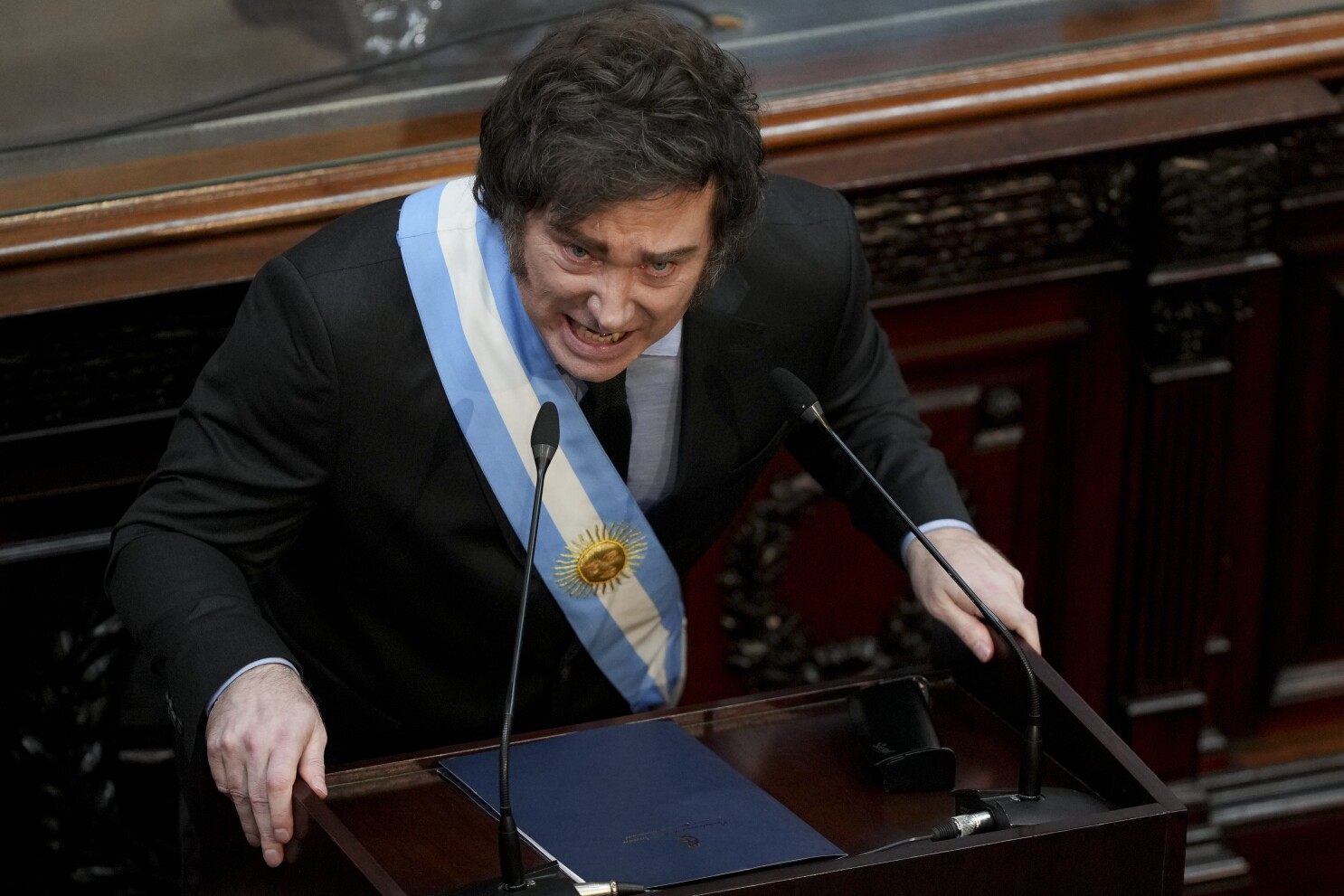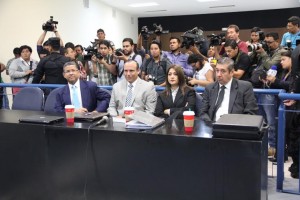 Although former president Francisco Flores will go to trial, Salvadorans claim the judicial system is biased because a court decided to release Flores from jail to await his trial date at home.
Although former president Francisco Flores will go to trial, Salvadorans claim the judicial system is biased because a court decided to release Flores from jail to await his trial date at home.
Flores is accused of stealing $15 million donated by the Taiwanese government for the victims of the earthquake that struck the country in 2001. The trial will determine if he is guilty or not of the three charges he faces.
Salvadorans protested immediately when the magistrates confirmed their decision to permit the ex-president to return to his residence. Many expressed their opposition, anger and rejection of the decision publicly on social networks, noting that Flores’ legal process sets precedent as the first case of corruption by a public functionary to be heard under Salvadoran law and the decision to free him grants him unwarranted privileges.
“Justice in my country has been prostituted and the balance has been shifted in favor of people who already are most likely to succeed. I don’t have any confidence in the justice system. The decision to permit the ex-president to return home disgusts me and makes me ashamed,” said Rafael Quiñónez, a businessman in San Salvador.
In January of 2014 Flores appeared before a special commission of the Salvadoran Parliament assigned to investigate his case. In an interrogation that lasted several hours, he admitted under oath that he had received various checks amounting to “some 20 million dollars” made out to him personally by the Government of Taiwan.
In a ruling on December 3, Judge Miguel Garcia Argüello ordered a trial, imposed new charges of money laundering and sent the ex-president to a police jail. The judge found sufficient evidence to prove that Flores committed the crimes of which he is accused and increased his personal wealth by more than $333,104. The judge also determined that Flores “deliberately hid the money and transferred it to an account belonging to the right-wing party ARENA, in a criminal manner.”
“The process generated funds that were not used for what they had been donated, and did not meet legal requirements, and apparently he appropriated funds for his own personal use,” the official court document stated.
Following the ruling, Flores was transferred to a small jail of the Anti-Narcotics Division of the National Civil Police, especially outfitted for the former president.
However, two weeks later the Chamber judges ordered that the former president be transferred to his residence at the earliest possible date under police custody to await the verdict originally scheduled for January 18, 2015. They also eliminated the charge of money laundering that Judge Argüello had added.
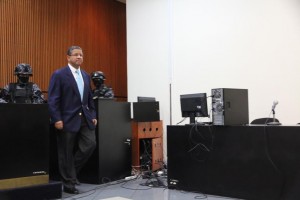
In the court document, the judge in the case recommended to the prosecution that the investigations should lead to formal charges against the people who received the money diverted by the former president and opened bank accounts for transferring the money donated by Taiwan. It also recommended that the prosecution present the Reports of Suspect Operations (called ROS reports) requested of the United States Government more than a year ago to look into Flores´s financial activities in the U.S. that led to the investigation.
The case has also touched other Salvadoran politicians. In the ruling, the judge urged the Attorney General to include as evidentiary witnesses former president Elias Antonio Saca who was president of ARENA during Flores’s term and Juan Tennant Wright, member of the top leadership of the rightwing party.
Former president Flores returned to his residence three days after the Chamber granted him house arrest. The next day, the Public Minister said that Flores had been transferred to a private hospital because of health complications. Yanira Chicas, one of Flores’s defense attorneys told the press, “The deterioration of the health of former president Flores is a consequence of his eighteen-day imprisonment in the police jail.”
During the investigation stage of the case, lawyers from the Foundation of Studies in the Application of the Law (FESPAD) strongly criticized the unyielding stance of the government attorneys on the case and said that the Attorney General, Luis Martinez, had sought to intimidate the complainants to keep them from pointing out the state attorneys’ irregularities in the presentation of evidence and testimony.
“We the complainants have been subjects of intimidation during the process, aimed at silencing denunciations about irregularities and negligent actions of the state in the investigation of the crimes attributed to ex-president Flores. We the complainants have not had access to the information contained in the reports indicating suspicious operations. Intimidation has included threats of possible penal actions against the complainants, about which we have advised the Attorney of Human Rights and the Supreme Court,” the lawyer Loyda Robles de FESPAD told the Program of the Americas
Since Flores was first brought before the Salvadoran courts, his defense lawyers have argued that there are neither witnesses, nor checks, nor other documents that show that the ex-president received, endorsed or embezzled the funds in question, which he received directly from the government of Taiwan.
“There isn’t a single witness, there’s no document that shows that the money was delivered. He did not open the accounts, nor did he deposit the money,” said the defense lawyer Edgar Morales Joya in a press conference.
“The justice system of the country is functioning, but the fact that there will be a trial does not necessarily imply that there will be a guilty verdict.”
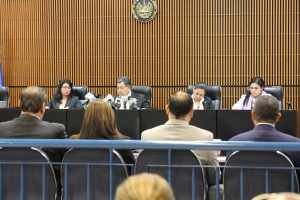
In a similar case in September of this year, the former president of Guatemala, Otto Perez Molina, turned himself in to the Public Ministry to stand trial. Authorities there are investigating a corruption case known as “The Line” to which he is linked.
To avoid the risk of flight, the judge in the Guatemalan case ordered preventive imprisonment for ex-president Perez Molina and sent him to a prison in the Guatemalan capital where he awaits his trial date. Perez Molina resigned from the presidency to face the charges against him and as a result of a powerful citizens’ movement.
Summary of the Case
The Flores case was brought to public attention in October 2013 by then-Salvadoran President Mauricio Funes. In his radio program Funes said that his government had been informed by the U.S. government of an investigation of money laundering against an ex-president and various former government officials.
Funes said he had a copy of the ROS report written in the U.S. He urged the Salvadoran Attorney General’s Office to open an investigation in the country and accused former president Flores of possibly committing at least eight crimes against the Salvadoran state, including money laundering and illegal enrichment.
“There is a legal investigation that has detected a report of suspicious activities and two reports of international transfers of money in the name of former president Francisco Flores Pérez,” said then-President Mauricio Funes in his regular Saturday evening radio program.
In December of that same year, the Salvadoran Parliament created a special commission to investigate the case. A month later, Flores was subpoenaed for interrogation about the delivery and the use of funds donated for international aid.
“I never deposited an aid check from Taiwan in any account. I received funds in a direct and personal manner even when I was no longer president,” said Flores when questioned by the deputies of the special commission.
The first interrogation was suspended for lack of time. The deputies then issued a summons to the ex-president for another round of questions. However, Flores did not return to Parliament. The deputies presented their conclusions to the state’s attorneys and asked the Attorney General to seek an arrest order for Flores for disobeying the authorities and for having refused to continue answering the questions of the special commission.
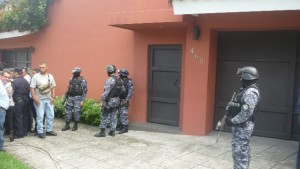
On May 6, 2014, an arrest order for the former president was issued and Interpol put out a red alert since Flores remained a fugitive from justice. Four months later, in September, Flores turned himself in voluntarily to the judge in the case. This was cited as the reason the judge granted him house arrest.
Authorities of El Salvador´s Ministry of Security said the government has to pay $800 to $900 dollars a day to keep Flores in custody in his residence. They asked that Judge Italmir Orellana revoke the order for house arrest and transfer the ex-president to a Police prison. The petitions were not heard.
Flores continues under house arrest awaiting trial for the crimes of embezzlement, illegal enrichment and disobedience.
Translation: Esther Buddenhagen


